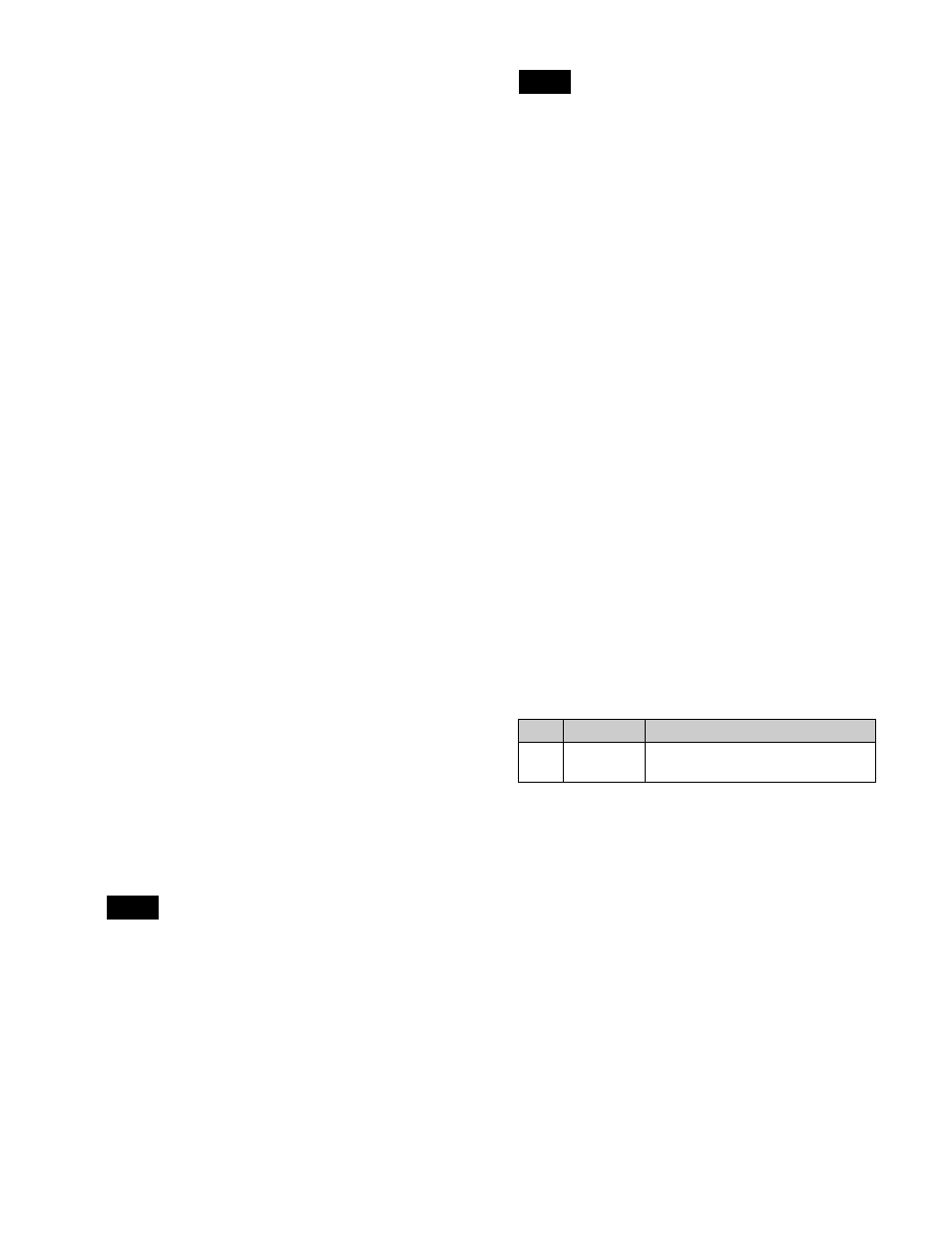Rder – Sony GP-X1EM Grip Extension User Manual
Page 483

483
Configuring detailed settings for a disk
recorder (video disk communications
protocol)
1
In the
>DCU >Serial/Net Port Assign menu (7355), select
the target to set (DCU1 or DCU2).
2
Select the port connected to the target disk recorder to
set.
3
Press [Port Setting].
When “DDR VDCP” is selected as the device type, the
DDR VDCP Setting menu (7355.4) appears.
When “Simple VDCP” is selected as the device type,
the Simple VDCP Setting menu (7355.6) appears.
The slot number/port number, device type, port name,
control panel number, and disk recorder type appear at
the top of the status area. The setting status of each
item appears at the bottom of the status area.
4
In the
recorder.
Player:
Functioning as a player.
Recorder:
Functioning as a recorder.
5
In the
character count mode.
Fixed 8 Character:
Handle as 8-character file names.
Variable Length:
Handle as variable-length file
names (restricted to files with names of up to 23
characters).
6
In the
sense.
Zero based:
Mode in which timecode is sensed
(detected), taking the first frame of the loaded file
as 00:00:00:00.
SOM based:
Mode in which sensing occurs using the
timecode saved in the loaded file.
The details of the above operation modes depend on
the connected device. For more information, refer to
the documentation for the connected device.
7
When using a disk recorder that does not support the
timecode drop frame bit, select one of the following in
the group.
Drop Frame:
Drop frame mode.
Non Drop Frame:
Non-drop frame mode.
This setting is only valid for the following system field
frequency/frame frequency values.
29.97, 30, 59.94, 60
8
Select the target item to set.
1.
Video Port: Number of the video port associated
with the serial port to which the setting applies.
For a player, the output port setting.
For a recorder, the input port setting.
2.
Maximum Open Delay: Maximum time required
to open a file
3.
Maximum Cueup Delay: Maximum time required
to cue up a file
4.
Play After Cueup Delay: Delay time from the
cued-up state to begin playback
5.
Stop Delay: Delay time from issuing the Stop
command until actually stopping
6.
Still Delay: Delay time from issuing the Still
command until actually stopping
7.
Continue Delay: Delay time from issuing the
Continue command until actually stopping
8.
Idle Delay: Delay time from unloading a file until
entering the idle state
The idle state is a state wherein a previous file has
been unloaded before a new file is loaded (that is,
a state wherein no file has been loaded).
9.
Status Sense Interval: Time until the next Status
Sense command is issued (Simple VDCP Setting
menu only)
9
Set the video port number or response speed.
10
Press [Set].
11
Repeat steps
8
to
10
as required to make the settings
for other items.
To enable or disable the loop and recue functions
Loop:
Replay the loaded file in a continuous loop. Press
[Loop] to enable/disable the function.
Recue:
After playing the loaded file, recue to the
beginning and then stop. Press [Recue] to enable/
disable the function.
Configuring detailed settings for a disk
recorder (Odetics protocol)
1
In the
>DCU >Serial/Net Port Assign menu (7355), select
the target to set (DCU1 or DCU2).
Note
Note
No.
Parameter
Adjustment
2
Setting
Video port number or response
speed
